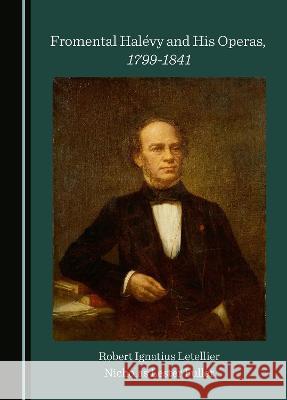Fromental Halevy and His Operas, 1799-1841 » książka
Fromental Halevy and His Operas, 1799-1841
ISBN-13: 9781527597815 / Angielski
In his lifetime, the opera composer Fromental Halevy was considered the leader of the French school; his admirers included Wagner, Berlioz, and later Mahler. Today, he is chiefly remembered for his grand tragic opera La Juive (Paris, 1835), a unique work exploring the nature of freedom, faith, and tolerance. It has enjoyed rediscovery in recent times, and its perennial challenge to our presuppositions makes it a work of intense artistic significance. Halevy worked in the heady context of Paris after the 1830 Revolution and before the debacle of 1870-when the French capital was at the centre of the operatic world. He wrote some 30 operas in the established genres of grand opera and opera-comique. L'Eclair (1835) and Guido et Ginevra (1838) consolidated his success in these genres. This study throws light on this shadowy figure, looking at his life, his letters, contemporary opinion about him, and, most importantly, his operas. Each one is examined in terms of its origin, libretto, musical features, and place in the vibrant critical journalism of mid-19th century France. The text provides musical examples and something of the rich iconography that accompanied the creation of his works.











